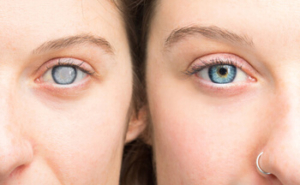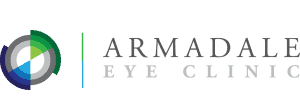Can You Watch TV After Cataract Surgery? Tips To Know
Cataract surgery is a common, highly successful procedure performed to get rid of a cloudy lens in the eye and replace it with an artificial lens. This procedure is generally straightforward and highly effective in restoring vision, offering the potential for clearer vision and improved quality of life. However, as with any surgery, cataract surgery recovery is an essential phase to ensure optimal results. One common question that arises for many patients after cataract surgery is: Can you watch TV after cataract surgery?
Let’s explore this concern in detail, alongside other related considerations, such as when to resume normal activities, the potential effects of too much screen time on healing, and tips for a successful recovery process.
Understanding Cataract Surgery And Recovery

The surgery usually lasts only a few minutes, and the patient can return home the same day. The new lens (often called an intraocular lens or IOL) restores vision, allowing patients to see clearly without the blurry or cloudy effects of cataracts.
The Healing Process After Cataract Surgery
Like any surgery, proper recovery is essential after cataract removal. The healing process is generally smooth for most patients, though it may vary depending on individual circumstances.
In the days following cataract surgery, it is crucial to follow your eye doctor’s guidance to avoid complications that could delay recovery.
During the first few days, patients will likely need to wear a protective eye shield, apply prescribed eye drops, and avoid certain activities that could strain the eye. It is also common to experience some discomfort, like mild irritation or blurred vision, as the eye heals.
Can Watching TV After Cataract Surgery Hinder Recovery?
One of the most common concerns after cataract surgery is whether watching TV or using screens too soon can interfere with recovery. While the temptation to resume normal activities like watching TV may be strong, it is important to consider the possible effects of screen time on the healing eye.
Eye Strain And Fatigue
After cataract surgery, your eyes are more sensitive and may not be accustomed to the sharpness of the new lens. Watching television or using digital screens can lead to eye strain and fatigue, which may slow the healing process or make your eyes uncomfortable.
It is important to give your eyes time to adjust to their new lens and allow the healing process to proceed without added strain.
Adjusting To A New Vision
Cataract surgery often results in improved vision, especially in cases where the cataract is causing significant vision impairment.
However, the new artificial lens may take some time to feel comfortable, especially when focusing on screens. The contrast between the brightness of the TV screen and your newly healed eye may be noticeable, causing temporary discomfort or visual disturbances.
 When To Start Watching TV After Cataract Surgery
When To Start Watching TV After Cataract Surgery
Many eye doctors recommend waiting at least 24 to 48 hours before resuming activities like watching TV. This gives your eye time to heal and adjust to the new lens.
During the first few days of recovery, it is important to follow your doctor’s advice and avoid heavy lifting, strenuous activities, or activities that may cause eye strain.
Tips For A Smooth Recovery Process
Here are some essential tips to help ensure your recovery after cataract surgery is as smooth and comfortable as possible:
1. Follow Your Doctor’s Instructions
Your eye doctor will offer specific instructions to help you recover effectively after cataract surgery. This will likely include using prescribed eye drops to prevent infection, wearing your protective eye shield, and limiting certain activities, like watching TV or reading, during the initial recovery phase.
2. Limit Screen Time
While it may be tempting to watch your favourite shows, it is best to limit screen time during the first few weeks of recovery. Eye strain from extended screen use can impede the healing process. Try to take breaks from screen time, and when you do watch television, ensure you are in a comfortable, well-lit space to minimise strain.
3. Wear Glasses As Recommended
After cataract surgery, you may need to wear glasses to ensure optimal vision. Depending on the type of intraocular lens used, you may need reading glasses or glasses for distance vision. Wearing your glasses as recommended will help prevent additional strain on your eyes when watching TV or engaging in other activities.
4. Protect Your Eyes From Infection And Injury
During the early stages of recovery, your eyes will be more vulnerable to infection and injury. To help prevent infection, continue using prescribed eye drops, wear your protective eye shield while sleeping, and avoid touching or rubbing your eyes.
It’s necessary to avoid lifting heavy objects and engaging in strenuous activities, which could increase the risk of complications during the healing process.
5. Wearing Sunglasses
During recovery, protecting your eyes from bright lights and UV rays is important. Wearing sunglasses can help reduce glare and protect your eyes from sun exposure, which can cause discomfort or slow down the healing process. Be sure to wear sunglasses when outside, even on overcast days.
Frequently Asked Questions
1. What should I do if my eyes feel strained after watching TV?
If you experience eye strain after watching TV, take regular breaks to rest your eyes. Ensure the room is well-lit to reduce glare, and consider adjusting the brightness and contrast on your screen. If discomfort persists, consult your eye doctor for advice.
2. Can I drive after cataract surgery?
It is generally okay to resume driving once your vision stabilises, typically within a week or two after cataract surgery. However, please consult your eye doctor to ensure it is safe for you to drive.
3. Can I use my phone or computer after cataract surgery?
Limiting screen time, including using your phone or computer, is generally recommended for the first few days after cataract surgery. Your eyes will be more sensitive during this time, and avoiding straining them is important. Follow your eye doctor’s advice for when it’s safe to resume these activities.
Conclusion

You can ensure a smooth and successful recovery by following your eye doctor’s instructions, wearing protective gear, and taking breaks from screen time. As your eye heals and your vision improves, you’ll be able to enjoy all the activities you love with greater clarity and comfort.
If you’re considering cataract surgery or have recently undergone the procedure, we’re here to guide you every step of the way. Our expert team in Melbourne is dedicated to providing personalised care to ensure a smooth recovery and the best possible outcome for your vision.
Don’t hesitate to reach out for a consultation or any questions you might have about your recovery process. Contact Armadale Eye Clinic today at (03) 9070 5753, and let’s help you see the world more clearly!
Note: Any surgical or invasive procedure carries risks. Before proceeding, you should seek a second opinion from an appropriately qualified health practitioner.
Sources:
Moshirfar, M., Milner, D. and Patel, B. C. (2023) Cataract Surgery. StatPearls Publishing. Available at: https://www.ncbi.nlm.nih.gov/books/NBK559253/ (accessed 18 April 2025).
Mukamal, R. (2023) 10 Cataract Surgery Side Effects, and How to Cope. In American Academy of Ophthalmology (ed. D. Turbert). Available at: https://www.aao.org/eye-health/tips-prevention/side-effects-cataract-surgery-complications-cope (accessed 18 April 2025).
Nurmi, D. L. (2023) Do’s and Don’ts: Restrictions After Cataract Surgery. In Healthline. Available at: https://www.healthline.com/health/restrictions-after-cataract-surgery (accessed 18 April 2025).


 When To Start Watching TV After Cataract Surgery
When To Start Watching TV After Cataract Surgery




 One of the biggest ways cataracts can cause dizziness is by affecting depth perception. Depth perception is part of your spatial awareness which helps you judge distances—like how far away a step is or where the edge of a curb begins.
One of the biggest ways cataracts can cause dizziness is by affecting depth perception. Depth perception is part of your spatial awareness which helps you judge distances—like how far away a step is or where the edge of a curb begins.
 The good news is that there are ways to improve your vision and balance. Regular eye check-ups, wearing the right glasses, and cataract surgery (if needed) can help you see more clearly and feel more stable.
The good news is that there are ways to improve your vision and balance. Regular eye check-ups, wearing the right glasses, and cataract surgery (if needed) can help you see more clearly and feel more stable.
 Don’t expose your eye to contamination or risk of injury
Don’t expose your eye to contamination or risk of injury